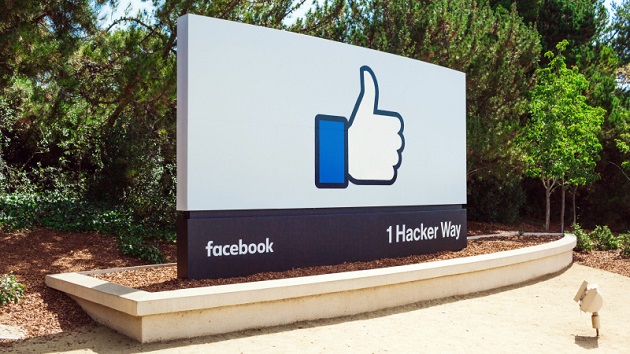Facebook(NEW YORK) — Facebook doubled down on its political ads policy Thursday, saying it “considered” changing it due to backlash, but ultimately decided to keep it mostly the same. In particular, critics were concerned about two points: The policy does not limit ads targeting specific groups of people and it does not remove misleading ads. Political ads that target specific groups of people was one of the main factors critics say allowed disinformation to spread on the platform, especially during the 2016 election. Ahead of 2020, Google pledged to stop micro-targeting for political ads on its platform.Facebook “considered doing so,” but ultimately decided against it, director of product management Rob Leathern wrote in a blogpost Thursday. “Our data actually indicates over 85% of spend by U.S. presidential candidates on Facebook is for ad campaigns targeted to audiences estimated to be greater than 250,000,” Leathern wrote.In addition, while Facebook said Thursday it will disallow ads from politicians if they have hate speech, “harmful content,” or content designed to intimidate voting, it has not said it will remove ads with false information, a topic that has caused heated debate. Lawmakers, like Rep. Maxine Waters, D-Calif., have previously slammed Facebook’s practices as an “ad policy that gives politicians a license to lie.” The Trump campaign spent more than $1 million during one week at the end of September in anti-impeachment ads on Facebook, including some that were widely regarded as being misleading.Meanwhile, 2020 Democratic candidate Elizabeth Warren intentionally posted false ads on Facebook to lash out at the policy, claiming the company’s CEO Mark Zuckerberg endorsed Trump for reelection. “What Zuckerberg has done is given Donald Trump free reign to lie on his platform,” she said in the ad.Facebook’s policies are based on the “principle that people should be able to hear from those who wish to lead them, warts and all, and that what they say should be scrutinized and debated in public,” according to Leathern. “Ultimately, we don’t think decisions about political ads should be made by private companies, which is why we are arguing for regulation that would apply across the industry,” he wrote in the Thursday post.He added, however, that the platform is “not deaf” to the criticism. Leathern said people can opt to see fewer political ads if they choose and that the company has made updates to its Ad Library archives for increased transparency. The announcement comes as the 2020 presidential election ramps up — and as fellow social media giants Twitter and Google pledged to ban political ads and end targeting, respectively. Copyright © 2020, ABC Audio. All rights reserved.












